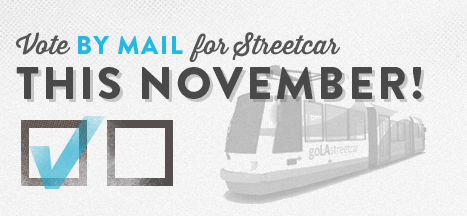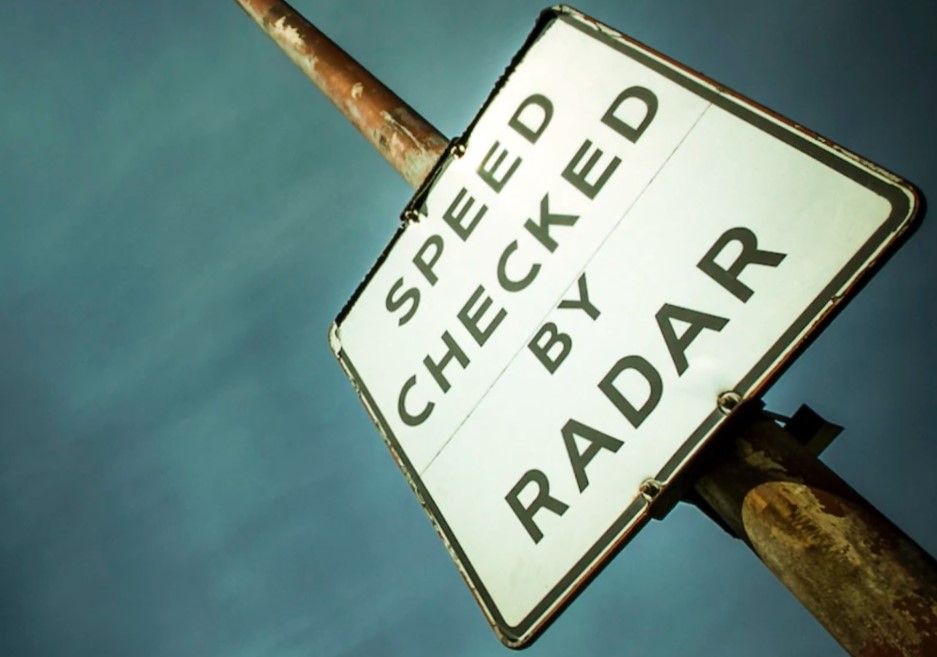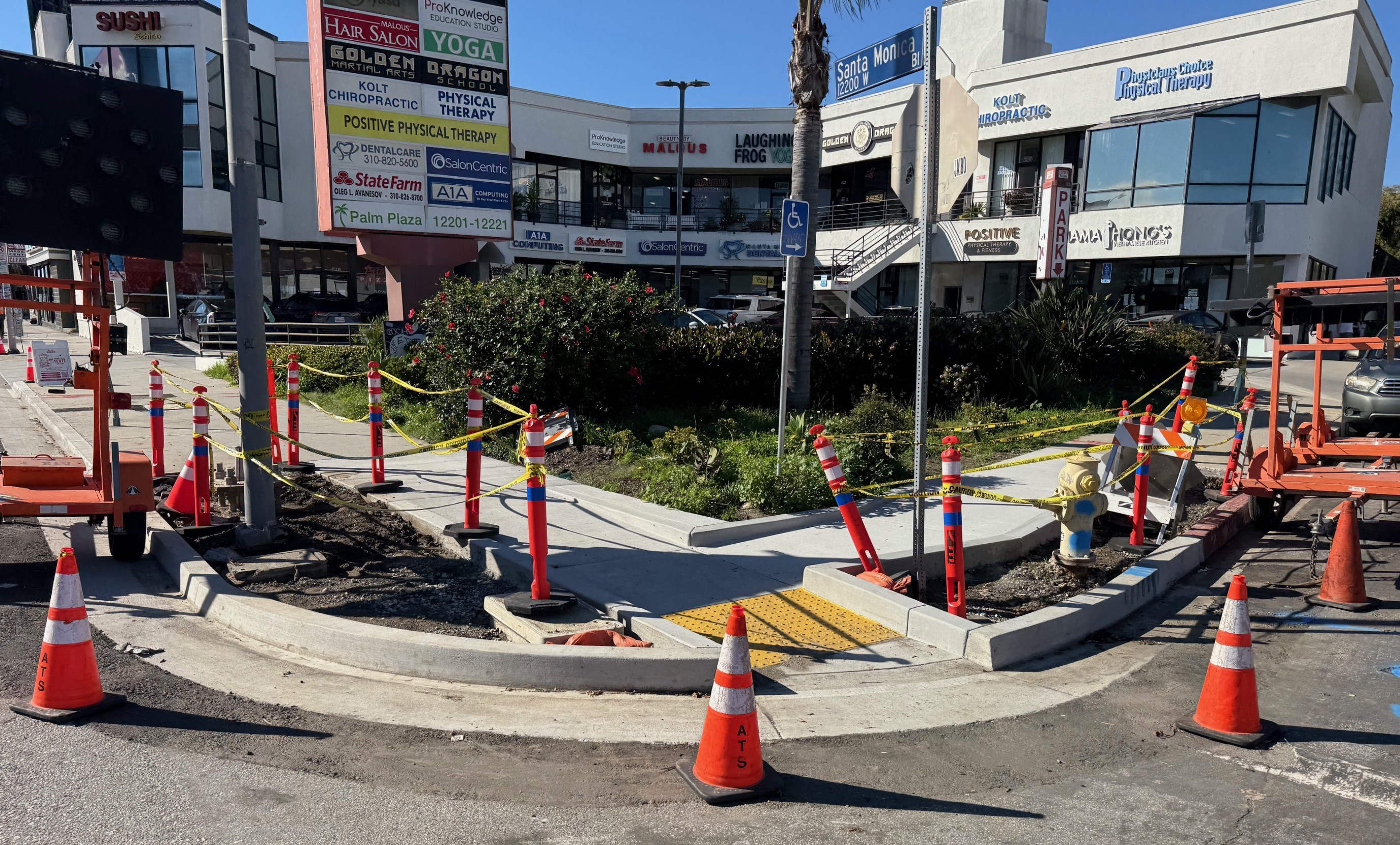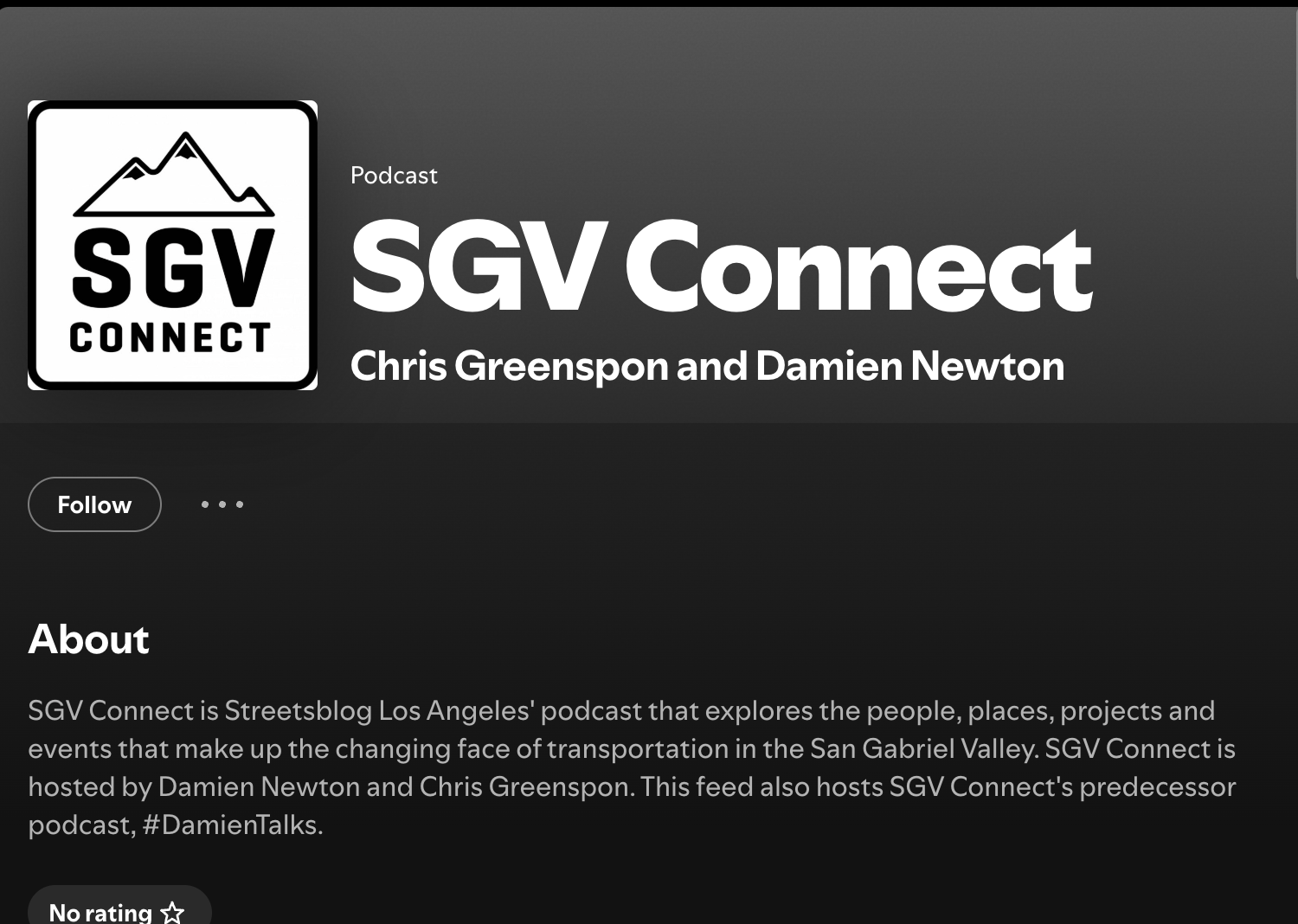(We'll resume our Measure J op/ed series tomorrow. During our one-day break, enjoy this piece by DTLA Rising author Brigham Yen's view on the vote on the Downtown Streetcar funding measure. You can still vote by mail before November 28. - DN)
The deadline to register to vote for the L.A. Streetcar in Downtown L.A. has passed. Now registered voters within Downtown will be mailing in their votes by mail – to ensure the ballots are received on time, they should be mailed in by November 28. What direction future developments will take in Downtown L.A. will depend on whether residents see the value of the streetcar circulating pedestrians around town -- promoting a walking culture and decreasing our dependency on the automobile -- or allowing the status quo to remain perversely slanted toward a car-oriented mentality. This is L.A. after all, right? Wrong. I believe that most Downtown residents embrace the idea of urbanism and its car-lite or even car-free tenets.
While voting "yes" for the streetcar is a no-brainer for the vast majority of Downtown residents, a small number have questioned why the private sector should have to pay anything for a public transit project. Let's face it, and it bears repeating again: The average condo owner would fork out about $60 in tax assessments for an entire year. That's about half the price of a Disneyland ticket where revelers can ride in, basically, a full-sized toy train looping around the theme park for one whole day. Why wouldn't you want a real train that takes you to where you need to go for the other 364 days in the year -- for half the cost?
Have we not already spent billions and billions more on supporting a car-oriented infrastructure that has gotten us into this mess to begin with? The unending traffic, the incessant lack of parking, the unhealthy dependency on our cars, etc. If you ask me, downtowners spending $62.5 million, in addition to bond issuance costs, of course, is an absolutely tiny price to pay for the tremendous amount of benefits this new streetcar would bring.
The knee jerk reaction I have heard from the few skeptics out there who still view the streetcar with unfounded wariness is "Why do we need a streetcar when we have buses servicing Downtown L.A.?" That's a valid concern about service redundancy, but the reality is these are two very different beasts: buses on rubber wheels and the streetcar on fixed rail alignments. The pink elephant in the room refuses to leave no matter how hard we wish more people would just get on those buses.
The fact is, not only is the streetcar going to be more successful at attracting a higher ridership per mile, but its economic development potential cannot be ignored. Especially by the many property owners who obviously want their property values to increase over time. It's already been proven in cities like Portland, Oregon, that the streetcar attracts investment and fuels urban revitalization. In fact, a Portland study found that $2.28 billion was invested within a few blocks from their streetcar.
Given the status of L.A.'s global position as the country's second largest city, we can safely assume that the streetcar will attract that kind of investment – if not much, much more – to our city center. And that's exactly how a streetcar would be completely different than the current DASH system that operates throughout downtown. The streetcar, with its permanent rail tracks in the road, has a much stronger identity, and consequently, a much broader appeal to the masses. Also, think of the visitors who are completely unfamiliar with L.A. who have no idea how to navigate the city by bus but will be able to understand quickly how to get around Downtown L.A. due to the streetcar.
As far along as Downtown L.A. has come, those of us who pay attention to Downtown development also realize there is a lot more to be done before we can sit back and say "we're finally there." There are still huge swaths of dilapidated buildings that the streetcar route plans to go by. Think of all the undeveloped potential in South Park, the Fashion District, Broadway, and along 11th Street that could become the next hot spots, but without the streetcar, will continue to exist on “the fringe” of Downtown for the foreseeable future. The streetcar would put these fringe areas on the map because eyes and bodies would constantly ride by, which is conducive to future developments.
And let's not forget that the streetcar is relatively easy to expand. Yes, Downtown L.A.'s first route is only the beginning. Once we set the precedent that the system works well, we can begin to expand it to other parts of Downtown L.A. such as the Arts District and even Chinatown over the freeway. Eventually, I see the streetcar emanating out of Downtown L.A. like it once did when the Pacific Electric Red Cars connected neighborhoods like Echo Park, Silver Lake, and Los Feliz along Sunset Blvd. Imagine a future where you'll be able to go between Los Feliz and Downtown LA and everywhere in between, car-free, all because we made the right decision to start with the L.A. Streetcar in Downtown L.A.







